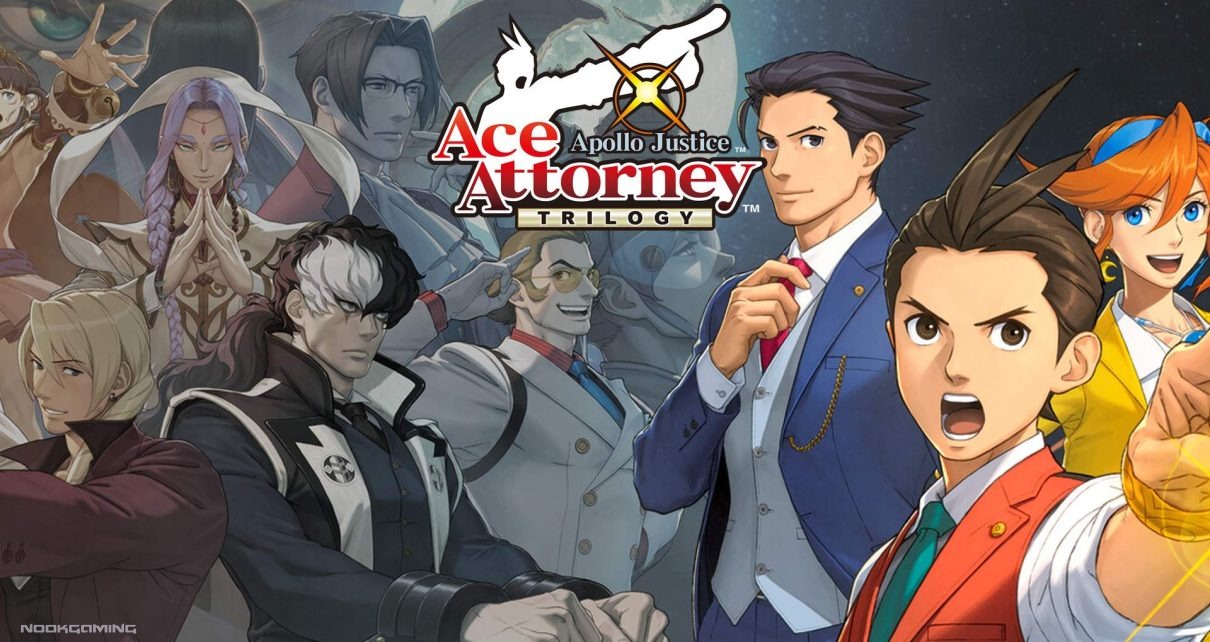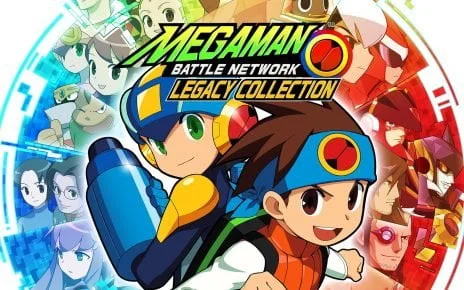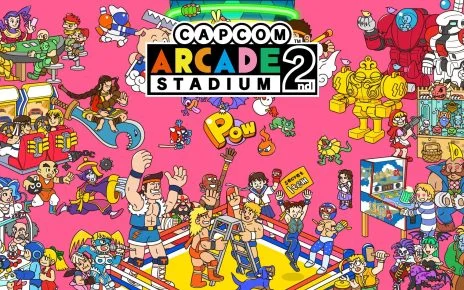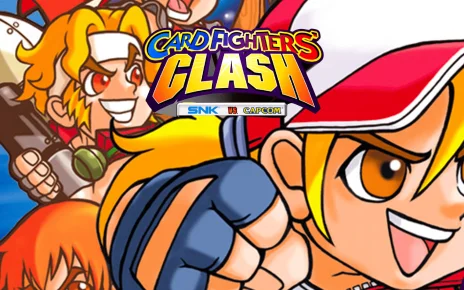Both the original Ace Attorney Trilogy and the Great Ace Attorney Duology have been available on PC and current gen consoles for some time now, leaving the Apollo Justice: Ace Attorney Trilogy the odd man out. Fortunately, Capcom have at long last brought these games to these platforms, making them widely accessible to fans. If, like me, you’re a fan of the Ace Attorney series, Apollo Justice: Ace Attorney gives you more of what you love. It might not quite have the zany energy of the original trilogy or reach the heights of the outstanding Great Ace Attorney, but it’s still a damn good time and one of the best murder mystery titles on the market.
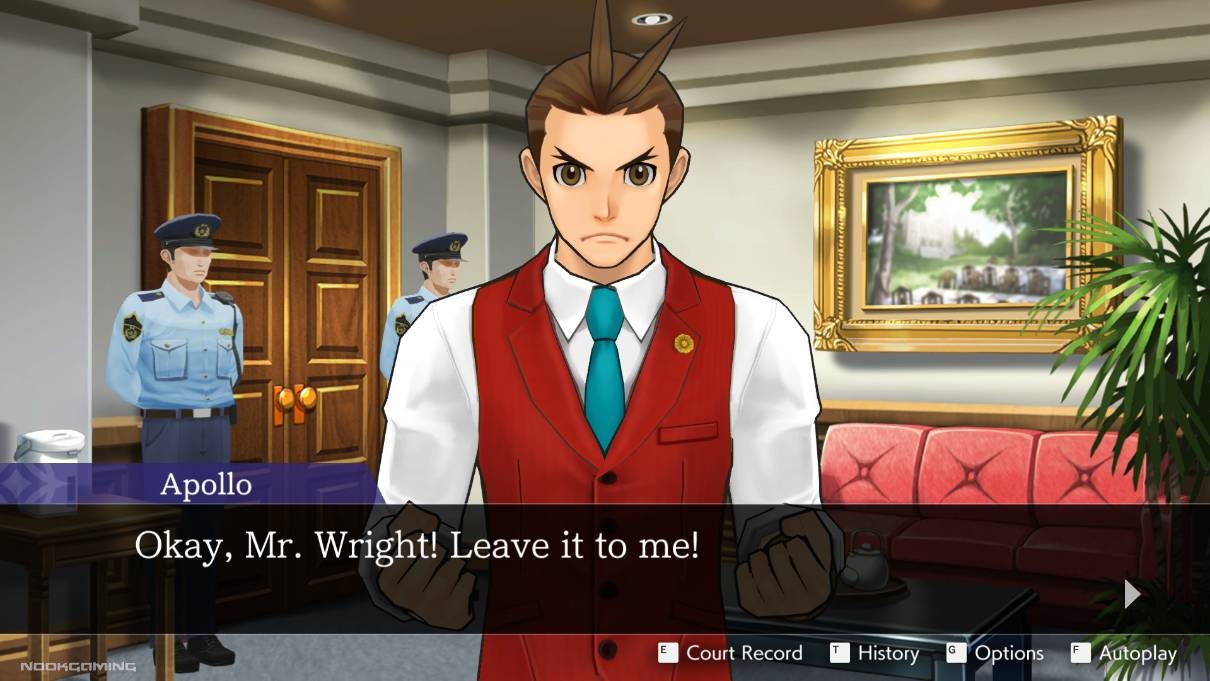
A New Story Begins
Apollo Justice: Ace Attorney Trilogy bundles the fourth, fifth, and sixth Ace Attorney games into a single release. While the $49.99 price tag might seem steep for games that were originally DS/3DS releases, there’s a ton of content here, including DLC cases from Dual Destinies and Spirit of Justice. It took me over 80 hours to play through the trilogy. The upscaled visuals look great, and Capcom added several new features. You can listen to the soundtrack, view the art gallery, and even make animations using the character sprites. There’s also a “story mode” that automatically solves all the puzzles for you, in case you’d rather focus on the characters and drama. I didn’t use this, but it’s a nice option if you want to experience the substantial story but aren’t interested in the gameplay.
The Apollo Justice Trilogy is a direct sequel to the original Ace Attorney Trilogy. While it’s possible to play it without playing the original trilogy and enjoy the cases, a number of story threads and characters from the original trilogy return, so for the best experience play the original trilogy first. The first game of the sequel trilogy, Apollo Justice, takes place 7 years after Trials and Tribulations, the final game of the original trilogy. Phoenix Wright has been disbarred after a scandal, but recruits a promising young lawyer named Apollo Justice. The second game, Dual Destinies, sees Phoenix return as a playable lawyer, as well as a new rookie Athena Cykes, who specializes in psychology, join the team.
The final game, Spirit of Justice, explores crime and punishment in the far-off nation of Khura’in which is the ancestral home of the spirit channeling practiced by the Fey clan in the original trilogy.
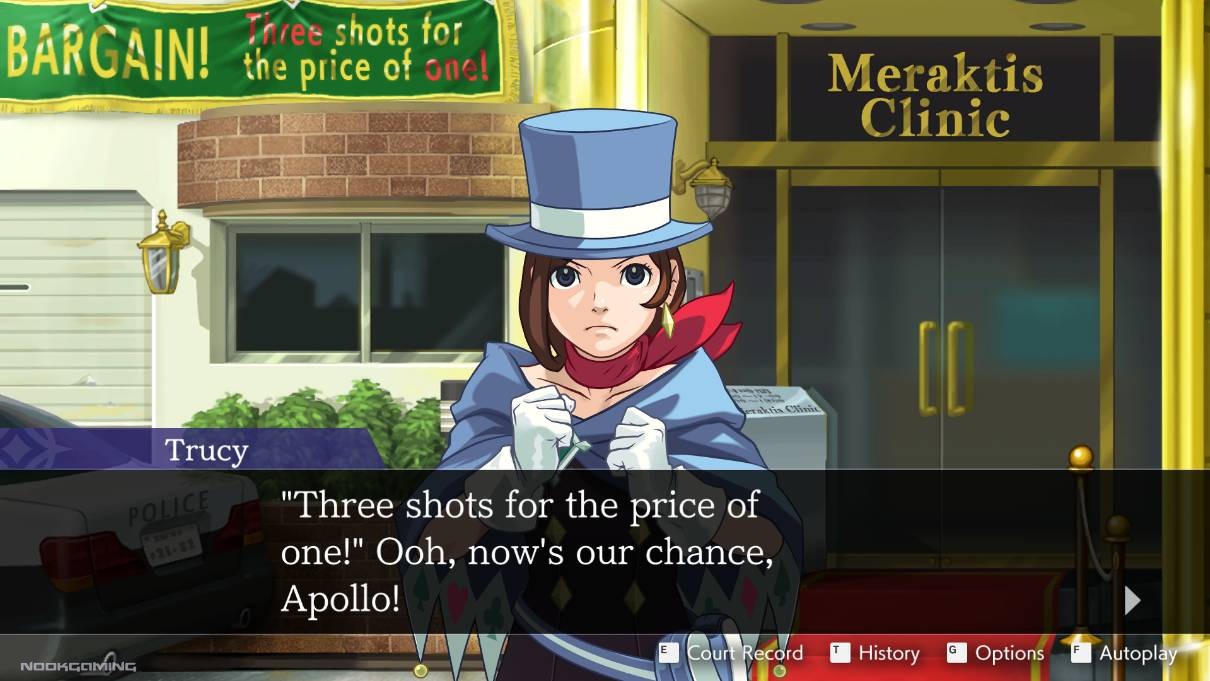
Gumshoe Gumption
If you’ve played any of the other Ace Attorney games, you’ll be right at home in the Apollo Justice: Ace Attorney Trilogy. Each game is divided into cases that alternate between investigation segments where you gather information and trial segments where you face off against the prosecution in the courtroom. The core ideas are unchanged from the original Ace Attorney game, but the Apollo Justice Trilogy does add new mechanics, quality of life features, and of course a lineup of wacky witnesses and tenacious prosecutors.
Investigation segments in Apollo Justice are essentially unchanged from those of the original Ace Attorney Trilogy. They play like a point-and-click adventure game where you advance by inspecting sections of the backgrounds and talking to other characters to gather information, which is then added to the court record for use during the trial segments. It mostly works well, but it’s possible to get stuck if you miss a clue in the background or a line of dialogue somewhere, leading to retracing your steps until you stumble on what you missed and the story can advance. The context clues are often not very helpful in this regard either. For example, you might go to the detention center to speak with your client only to find they are in questioning and you need to return “later”, with no indication of when later is or what you have to do first to trigger it.
Starting from Dual Destinies, investigation segments feature several quality of life improvements that help move things along. Both Dual Destinies and Spirit of Justice are much more explicit about telling you where you can currently look to find new information, as well as when you’ve done everything you need to in a location. Of course, you still have to find the clues and solve the puzzles, so I experienced this less as hand holding and more as respecting my time. Spirit of Justice did feature one fingerprint dusting puzzle over a large area with a non-obvious solution that became tedious, but for the most part the changes were such a welcome addition that it’s hard to go back to Apollo Justice investigations after experiencing the improvements.
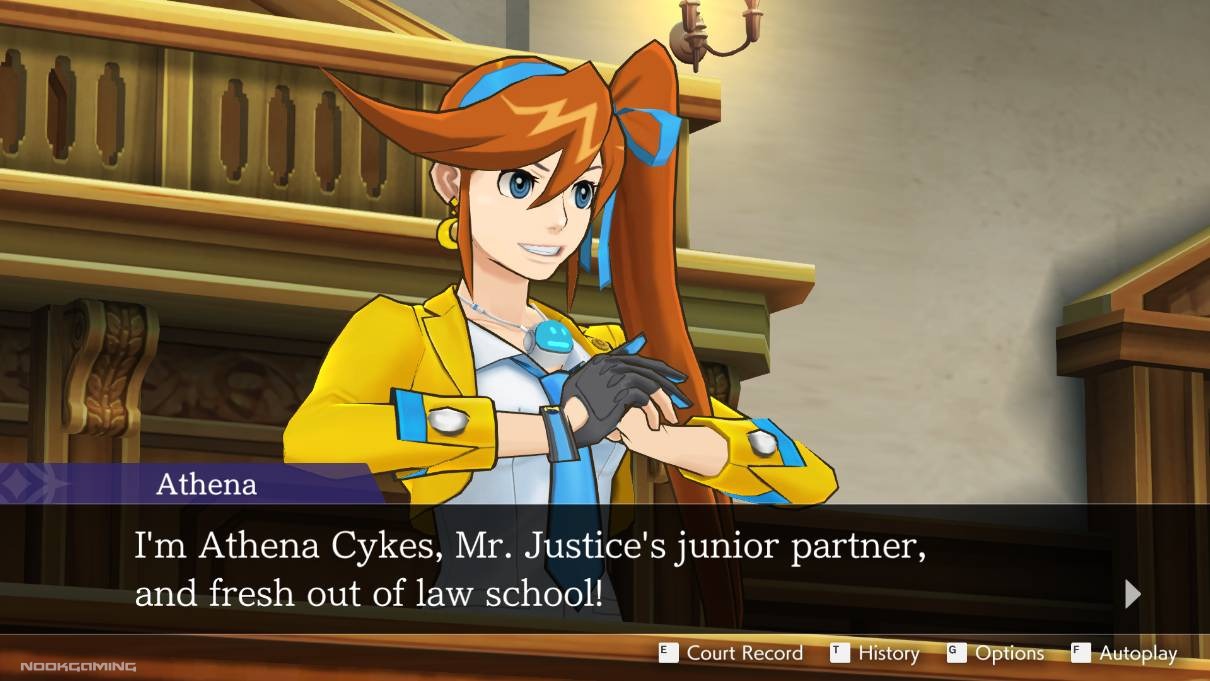
All Rise
Trial segments take our defense lawyers to the courtroom to face off against cunning prosecutors and often dubious witnesses. You defend your client primarily by cross-examining witnesses. You can press them to have them expand on the details of their testimony and then expose contradictions by presenting evidence proving that what they said just doesn’t add up. The presiding judge isn’t the brightest, and sometimes asks you follow up questions to clarify exactly how the evidence is relevant. At other times, there might not be anything obviously wrong with the witness testimony, and you’ll have to press on every statement to trigger an event showing the way forward. The fundamentals of trials are unchanged from the original trilogy, but it’s a winning formula that still feels great to play, and the Apollo Justice Trilogy does a good job making contradictions subtle enough that you feel clever for finding them without making them obscure.
The most substantial changes to gameplay in the Apollo Justice: Ace Attorney Trilogy come through the three playable characters’ different special abilities. Phoenix still has his magatama, which allows him to pry information from those hesitant to share. With the right evidence and a bit of guesswork, he can break the locks on their psyche, compelling them to come clean about whatever they were hiding. Apollo’s bracelet lets him hyperfocus and expose tells like twitches or nervous tics in witnesses who aren’t being completely honest. Lastly, Athena’s mood matrix allows her to delve into a witness’ emotional state, pinpointing emotions that seem out of place and helping the witness to uncover repressed memories relevant to the case.
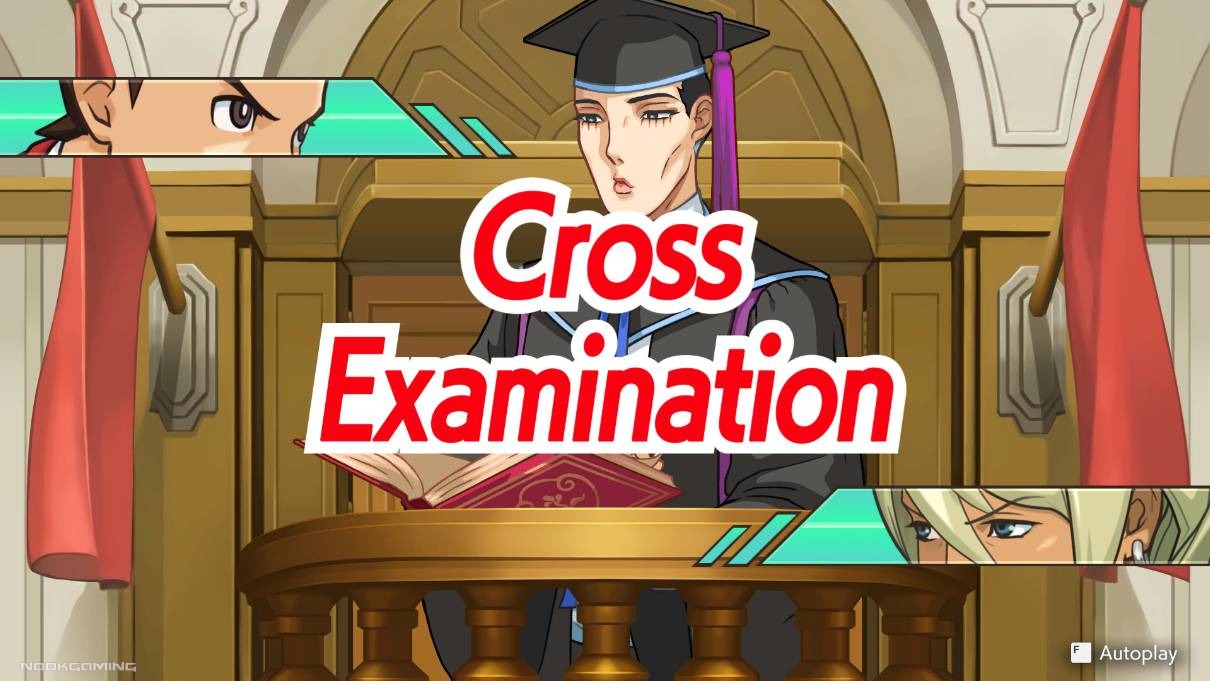
These abilities are a nice way to make the characters distinct, although I liked some more than others. Phoenix’s magatama is unchanged from the original trilogy, but it’s still a cool mechanic that allows you to make leaps of logic a bit too big for court. Apollo’s bracelet was my least favorite. Looking for the tell often devolved into an arbitrary pixel hunt for one. Plus, shouting “that guy stroked his chin! He must be hiding something!” just doesn’t feel like it should fly in a court of law. Athena’s mood matrix is the most complex of the three, using four primary emotional responses as well as evidence from the court record. I liked this too, especially the way it’s framed. The judge explicitly tells you emotional states are not admissible in court, and so the mood matrix sessions are about uncovering new information rather than nailing someone for feeling the wrong way.
One more notable new feature comes in the cases in Spirit of Justice set in Khura’in. Khura’inese trials feature a divination seance, where the Princess Rayfa uses her spiritual power to evoke the sensations experienced by the victim in their final moments. While the sensations themselves are true, Rayfa’s interpretation of these insights might not be correct, and you “cross-examine” the divination seance by pointing out contradictions between the sensations and the facts of the case. It’s a neat way to take advantage of the improved graphics of Spirit of Justice compared to the older games, as well as to give Khura’inese trials their own distinct flavor. Rayfa does perform a rather lengthy dance before each seance, Spirit of Justice smartly gives you the option to skip it if you want.
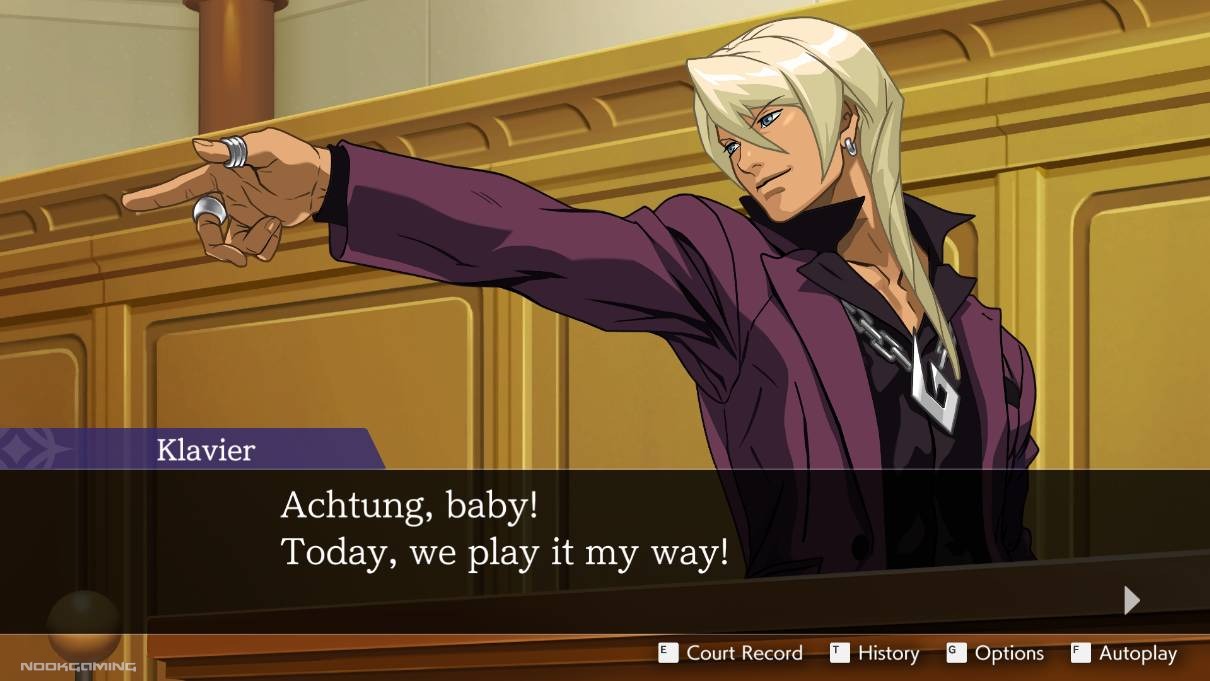
Prosecution and Punishment
A big part of what differentiates the three games in the Apollo Justice: Ace Attorney Trilogy is the characters you meet along the way. Most notably, each game has a different primary prosecutor, with their own personality and role to play in the story. Since you spend about half your time in the courtroom, a worthy adversary goes a long way toward making for a satisfying back and forth. And as they are major characters, the prosecutors’ character depth, or lack thereof, determines whether they can rise above their mechanical roles as opposition to become characters whose stories you get invested in. Not all the prosecutors in the Apollo Justice Trilogy are equal in this regard.
Apollo Justice introduces vaguely German Klavier Gavin, who moonlights as the guitarist and lead singer of his band the Gavinners. Perhaps wanting to pull back from the open hostility of Franziska and Godot from the original trilogy, Gavin is more laid back and rather nice for a prosecutor. He’s full of himself and not above dunking on Apollo when the opportunity arises, but comes across as a chill guy who wants to do his job well and doesn’t take his losses too hard. Gavin presents an interesting archetype not seen before in the series, but he’s ultimately a little too laid back to make much of an impact. Nor does it help that he’s mostly a background player in the game’s biggest case, despite good reason for him to be interested in the outcome. While I didn’t dislike Gavin, I ultimately thought he fell a bit flat.
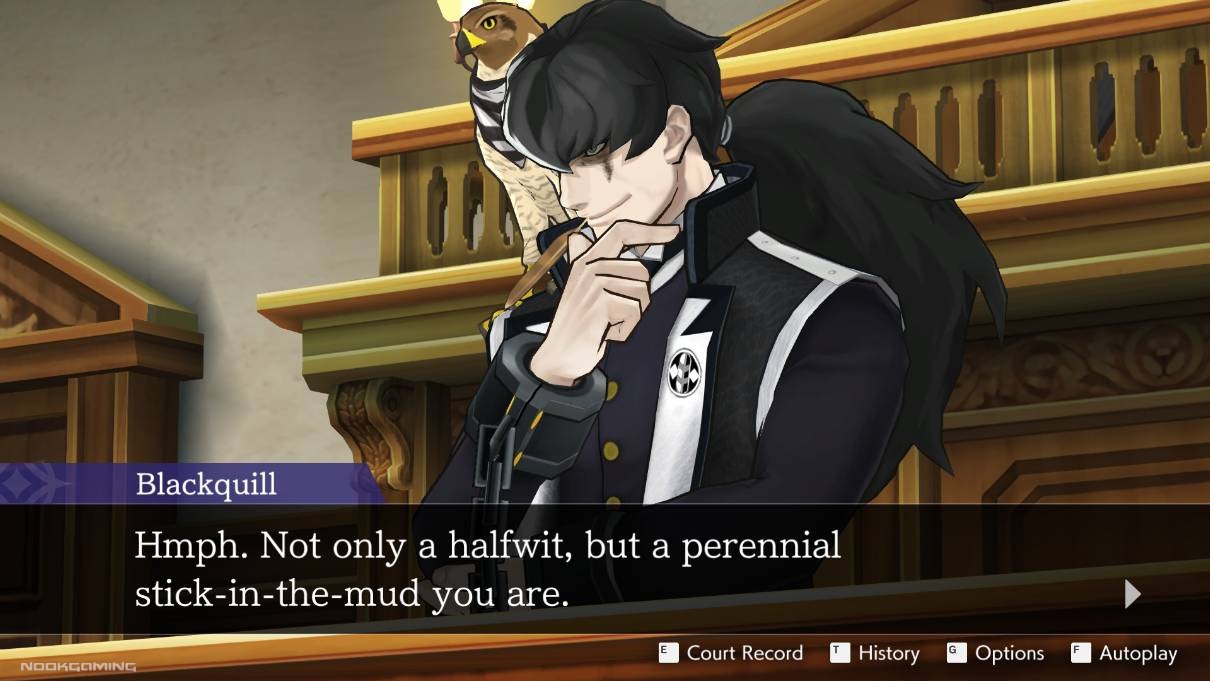
Simon Blackquill from Dual Destinies is the best prosecutor in the Apollo Justice trilogy. Blackquill is a convicted murderer given special permission to continue prosecuting despite his crimes. He’s intense, relentless, and manipulative, often having the judge and gallery eating out of the palm of his hand, all of which make him feel like a worthy foe. However, he’s also honorable and clearly has an agenda beyond simply defeating Phoenix and Co. in court. Blackquill will not tolerate lies and games, even from his own witnesses, and plays a major role in the games final case, which also showcases him in a different light. Plus, even when he’s cutting you down to size, his exaggerated bushido mannerisms and twisted sense of humor are kind of fun.
Nahyuta from Spirit of Justice on the other hand takes unlikability too far. He’s talked up as a kinder, more enlightened breed of prosecutor whose international experience has made him both a wise and feared opponent. In practice, his holier-than-thou attitude and constant urging of his opponent to “let it go” and accept a guilty verdict despite unanswered questions make him hypocritical and grating. It’s possible to play up the arrogant jerk character effectively, but Nahytua just isn’t it. He’s too serious to dismiss but not exaggerated enough to be fun. As you progress further into the story you learn more about why Nahyuta is the way he is, but it was never enough for me to enjoy facing him in court.
You’ll also cross paths with the brothers Winston and Gaspen Payne, who if you couldn’t guess from their names, are the comic relief of prosecutors. They’re minor characters without much depth, but their hilariously misplaced confidence is fun in the small doses they appear in. They show up in the tutorial cases, easing the player into the mechanics of trials and letting them feel like a hotshot defense lawyer before they face more substantial opposition from the main prosecutors.
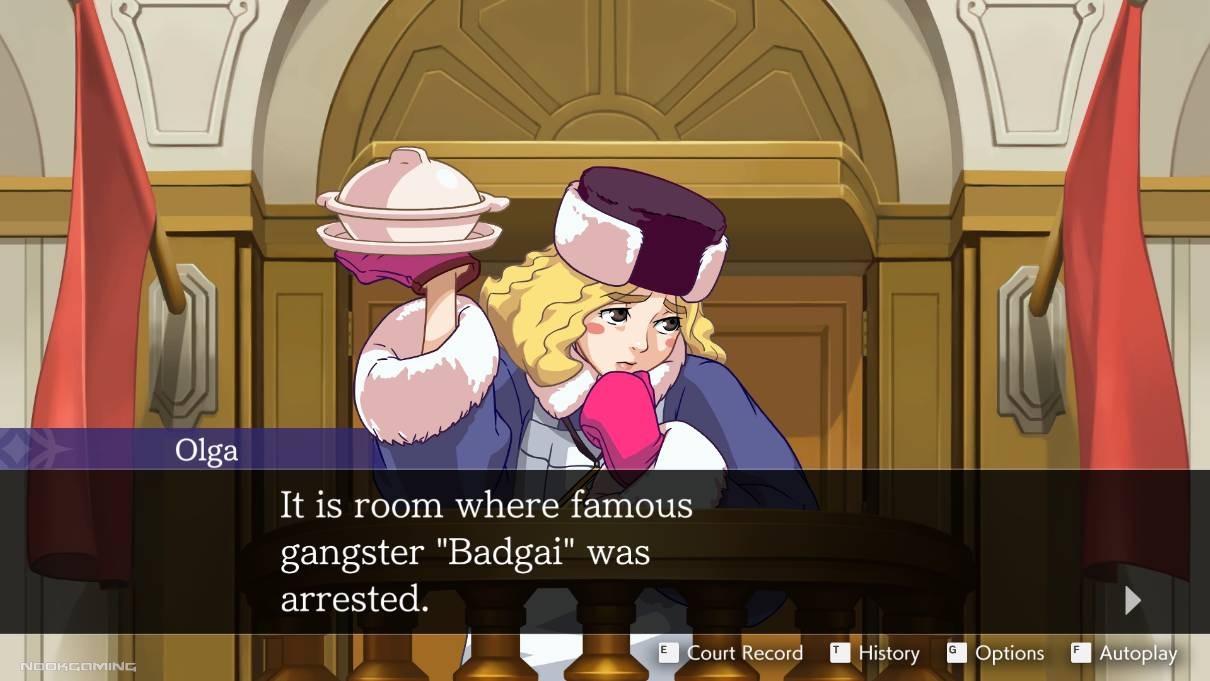
Friends and Foes
Besides prosecutors, you’ll interact with a bevy of witnesses, detectives, and assistants along the way. Witnesses tend to be wacky one-offs with punny names who play up exaggerated characteristics in a fun way, injecting energy and levity into the court proceedings and playing off the judge’s and prosecutors’ idiosyncrasies. Several supporting characters return from the original trilogy. Ema Skye is the main detective in Apollo Justice and Spirit of Justice, while other familiar faces like Maya Fey have roles to play in certain cases. It’s fun to see how your favorite characters from the original trilogy have grown and changed, or in some cases not changed all that much. And of course there are new assistants, most notably Trucy Wright, who supports Apollo Justice throughout the first game.
While I’d say overall the Apollo Justice trilogy has strong characters that still capture that classic Ace Attorney sense of heart, the biggest reason I rate it just a step below the other games in the series is its unwillingness to break too much from the archetypes and ideas that came before. Apollo Justice sets up a passing of the torch from Phoenix to Apollo. However, in addition to stepping into Phoenix’s shoes, Apollo steps into his personality (and Trucy into Maya’s), leading him to feel like a bit of a knockoff at first. Though to the game’s credit, Phoenix’s experiences have changed him, and the final case presents some interesting ideas around how law in Ace Attorney has changed since the original trilogy.
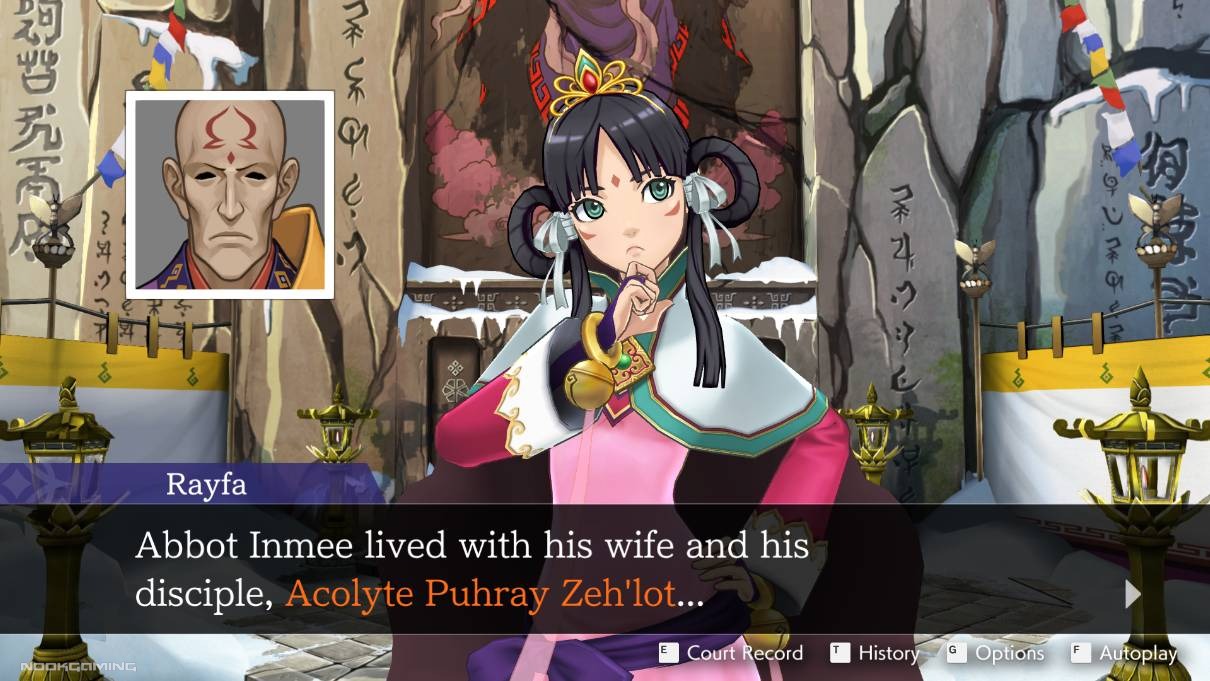
Dual Destinies, my favorite game of the trilogy, is in some ways better but also in some ways a step back. While it was disappointing to see Phoenix step away from the new personality and ideas of Apollo Justice, I did enjoy having him back in the courtroom. This also created more space for Apollo to develop his own distinct personality. I liked the addition of Athena Cykes too. While all three lawyers share a legal philosophy and penchant for melodrama, Dual Destinies did a great job making Athena feel like a newcomer, full of enthusiasm but prone to rookie mistakes and self-doubt, and Phoenix feel like a veteran who’s earned his confidence but can get a bit complacent at times. The later cases bring up interesting ideas centered on the conflict between finding the truth, even if it’s not what you hoped, and winning the verdict. Dual Destinies repeatedly tells you “the dark age of the law” where lawyers fabricate evidence and make up charges looms large, but never explores the implications as deeply as I would have liked. For a better treatment of similar themes you’ll have to play Great Ace Attorney.
Spirit of Justice focuses on scale and spectacle over ideas and character growth. Khura’in’s courts offer a new stage for Ace Attorney’s dramas to unfold on while hinting at an international conflict with sociopolitical implications far beyond those of the previous games. On the flip side, by this point the trio of Apollo, Phoenix, and Athena are established characters who don’t do much to develop further. Still, between the grand story and visually striking new mechanics, it’s a rousing way to conclude Apollo and Co.’s story.
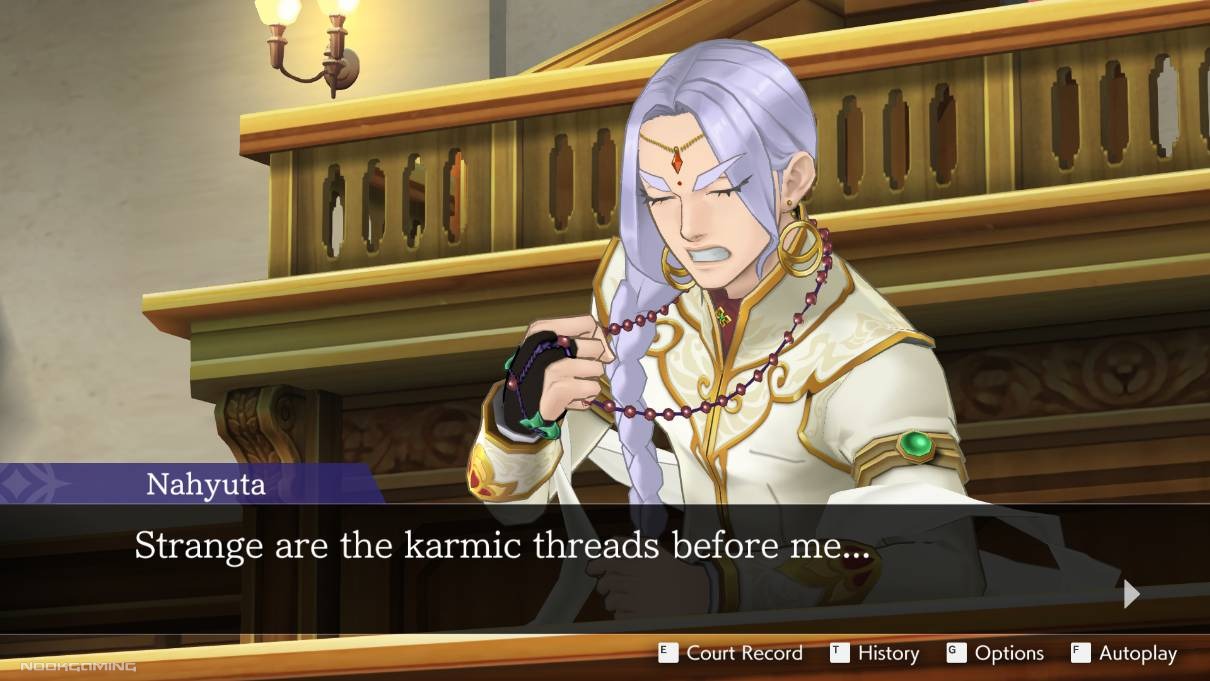
Art and Sound
As I mentioned, the upscaled art of the Apollo Justice trilogy looks great. It delivers the visual flair and energy you expect from an Ace Attorney game, and even ups the ante with fully animated cutscenes to open each case. Apollo Justice uses traditional sprite art like that of the original trilogy, while Dual Destinies and Spirit of Justice move to animated 3D models and allow you to rotate environments. Both the 2D and 3D art are polished, stylish, colorful, and bursting with verve.
The soundtrack, traditionally a strong point of Ace Attorney, delivers as well. Whether it’s the driving beats of the pursuit themes that play while cross-examine witnesses or the ethereal tones accompanying Phoenix’s magatama, the music perfectly complements the action. It’s also fun to listen to the different character themes and the playful ways in which they reflect the characters’ personalities. Beyond the music, there are some voiced lines, particularly in the cutscenes. Unfortunately, these are not so hot. Admittedly, these games are a decade old and voice acting overall was not as good back then, but the lines have the stilted, wooden delivery I associate with mid-2000s anime dubs.
The Ace Attorney series is also known for its high quality localizations, and true to form the English script of the Apollo Justice trilogy is an absolute pleasure to read. The dialogue does a great job giving voice to the eccentric personalities and mannerisms of the characters you meet along the way, and despite the inherent challenge in translating humor, the script is chock full of witty puns and clever wordplay. And yes, there are some pop culture references, but they’re consistently fun rather than cringey. The infamous “eat your hamburgers Apollo” meme is way overblown. Long live Japanifornia!
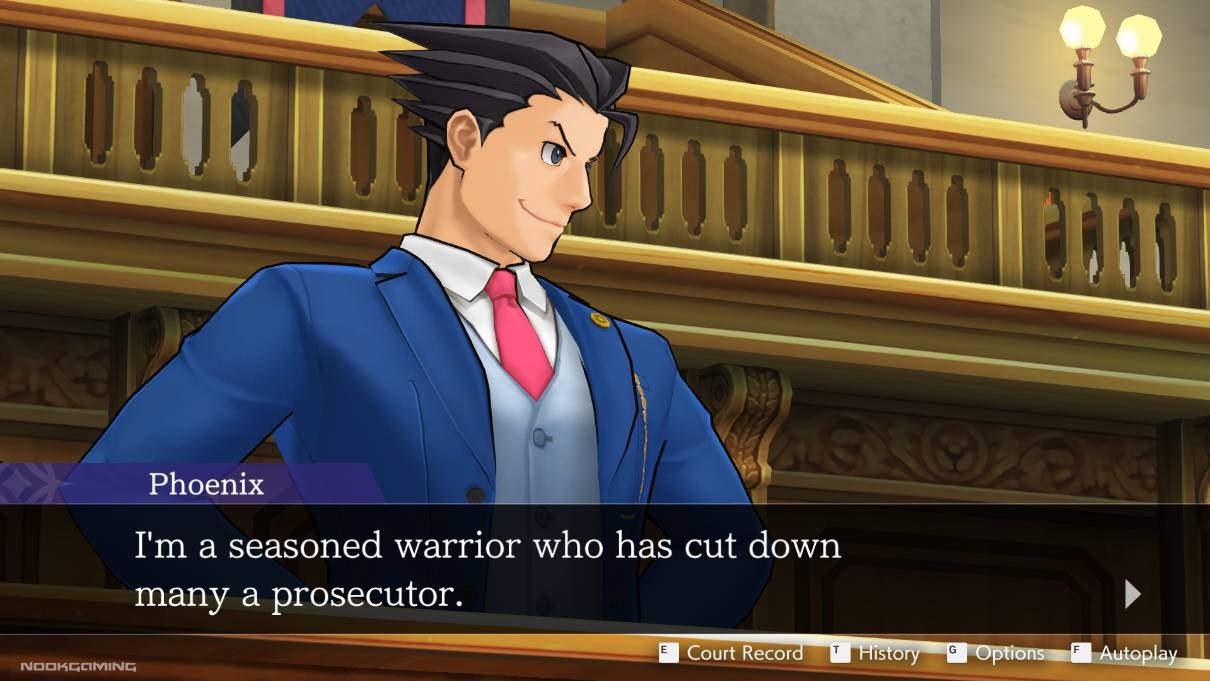
Verdict
Apollo Justice: Ace Attorney Trilogy is a worthy successor to a beloved original that proudly and successfully carries the Ace Attorney torch. Plus, this new release is a great package, jammed full of content, extras, and quality of life features that make it the best way to experience the Apollo Justice trilogy. While I think Apollo Justice: Ace Attorney Trilogy could have been even better with a stronger commitment to developing its characters and ideas, it’s still great fun and something I can’t imagine an Ace Attorney fan or fan of mystery games in general wouldn’t enjoy.
APOLLO JUSTICE: ACE ATTORNEY TRILOGY IS HIGHLY RECOMMENDED

Purchase: Humble (PC Steam)
If you are looking for another mystery title, you might enjoy Anonymous;Code.
Thanks to Capcom for providing a PC review code for Apollo Justice: Ace Attorney Trilogy.
A veteran of Oregon Trail and Battletoads, Wes has been playing and talking about games for as long as he can remember. He’s down to try almost anything, and he especially enjoys games with gripping narrative experiences.

